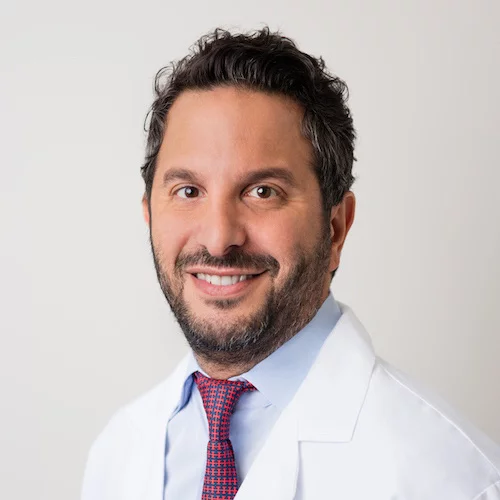Carotid Artery Stenosis (or Carotid Artery Disease) is a disorder of the carotid artery which causes narrowing of the blood vessels in the neck that carry blood from the heart to the brain.
Carotid Artery Disease is caused by a buildup of plaque caused by excess fat cells that develop over time slowly, closing the artery and preventing oxygenated blood from entering the brain.
- Sudden difficulty in walking, loss of balance, lack of coordination.
- Sudden loss of vision, blurred vision, or difficulty in seeing out of one or both eyes.
- Weakness, tingling, or numbness on one side of the face, one side of the body, or in one arm or leg.
Risk factors include Hypertension, Hyperlipidemia, Diabetes, Smoking – the same risk factors for heart attacks and stroke.
Carotid Artery Stenosis can be diagnosed with an ultrasound – a painless procedure that determines the percentages of arterial narrowing.
Carotid endarterectomy is the traditional surgical treatment for carotid artery disease. Carotid endarterectomy has been proven to be beneficial for symptomatic patients with a 50 percent or greater carotid stenosis (blockage) and for asymptomatic patients with a 60 percent or greater carotid stenosis.
Carotid stenting is also a viable alternative to a carotid endarterectomy in certain circumstances and for certain patients.
For asymptomatic or symptomatic patients with a less than 50 percent stenosis, medical management with use of statins, antiplatelet agents, and antihypertensive agents is the preferred method of treatment.
Carotid Artery Disease can be prevented through the same measures which help to avoid a heart attack or stroke. Dietary and lifestyle modifications should include reduction of blood pressure, regular exercise, improved sleep hygiene, not smoking, controlling chronic conditions, and limiting alcohol intake.
If left untreated, carotid artery stenosis can lead to a severe or complete blockage in these vessels, causing a stroke or transient ischemic attack.
Hypertension, Hyperlipidemia, Diabetes, and Smoking can all contribute to Carotid Artery Stenosis.
Carotid Artery Disease is the narrowing of the arterial blood vessel that provides oxygenated blood to the brain. It is caused by plaque buildup from fat cells just like a heart attack and stroke which can be prevented by reducing the risk factors associated with them. Surgery or stenting are possible treatments if proper lifestyle modifications and medications are not sufficient.
The key to prevention is early detection. If you have any of the aforementioned risk factors a consultation with a cardiologist is recommended to screen for carotid disease.



